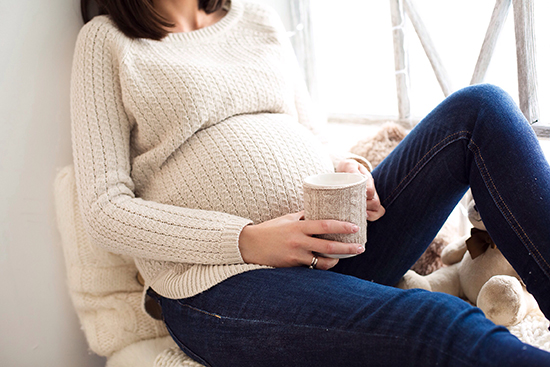
Researchers at the American National Institutes of Health (NIH) and Ohio State University have published a new study, suggesting that consumption of caffeine by parents is likely to increase the risk of miscarriage during pregnancy.
The study, published in the journal Fertility and Sterility, demonstrated how the researchers found a worrisome link between caffeine consumption and miscarriage.
Caffeine is a central nervous system stimulant of the methylxanthine class. According to health experts, it is the world’s most widely consumed psychoactive drug. It is legal and unregulated in nearly all parts of the world.
The world’s primary source of caffeine is the coffee bean (the seed of the coffee plant), from which coffee is brewed. A very common drink in most Western nations, a typical eight-ounce cup of coffee contains about 100 milligrams of caffeine.
In November 2015, a United States government panel declared that drinking coffee could be part of a healthy lifestyle, and that Americans could freely consume up to five cups a day without worrying about any side effects. This declaration by the panel didn’t sit well with some Americans. Already, health experts have warned that those with high blood pressure, diabetes or other health conditions should be more conservative in their consumption of caffeine.
In this current study, the researchers used information available at the Longitudinal Investigation of Fertility and the Environment (LIFE).
The Washington Post reports that the LIFE data included 501 couples interested in having children; who were recruited to participate in the study between 2005 and 2009. The men and women were asked to record their daily use of cigarettes, caffeinated drinks, alcohol and multivitamins during pre-conception and early pregnancy. They were asked to use ovulation detection and digital pregnancy kits to track the pregnancies. A pregnancy test’s conversion from a positive to negative, onset of menstruation, or clinical confirmation were all categorized as pregnancy losses.
At the end, the data showed that couples who drank more than two caffeinated drinks a day during the weeks before conception, had a higher risk of miscarriage. This led the researcher to suggest that the parents’ intake of caffeine may play a key role in miscarriage during pregnancy.
Caffeine consumption among women during pregnancy has long been speculated to have effects on the outcome of pregnancy. However, because the data supporting it was of poor quality, some health experts suggest limiting caffeine consumption during pregnancy. The United Kingdom Food Standards Agency recommends that pregnant women should limit their caffeine intake to less than 200 mg a day – the equivalent of two cups of instant coffee, or one and a half to two cups of fresh coffee. This study also confirmed that women who drink more than two caffeinated beverages each day during early pregnancy — defined in this study as the first seven weeks — may also be more likely to miscarry. In the study, 98 of the 344 women with a singleton pregnancy lost a baby.
But before this study, theories about how a man’s caffeine consumption affect a women’s pregnancy mostly involved the sperm. Even previous research conflicts on how caffeine affects sperm. But one of the larger studies, published in 2010 in the American Journal of Epidemiology, based on a sample of 2,554 young Danish men, found that high cola consumption of more than 14 half-liter bottles a week and/or high caffeine consumption of more than 800 milligrams a day, were associated with both a reduced sperm concentration and total sperm count.
A population health expert at the NIH who took part in the study, Germaine Buck Louis confirmed “Our findings also indicate that the male partner matters, too.”
If you want to support Anonymous Independent & Investigative News, please follow us on Twitter: Follow @AnonymousNewsHQ
This article (New Study: Consumption Of Caffeine By Mom And Dad May Cause Miscarriage) is a free and open source. You have permission to republish this article under a Creative Commons license with attribution to the author and AnonHQ.com.




